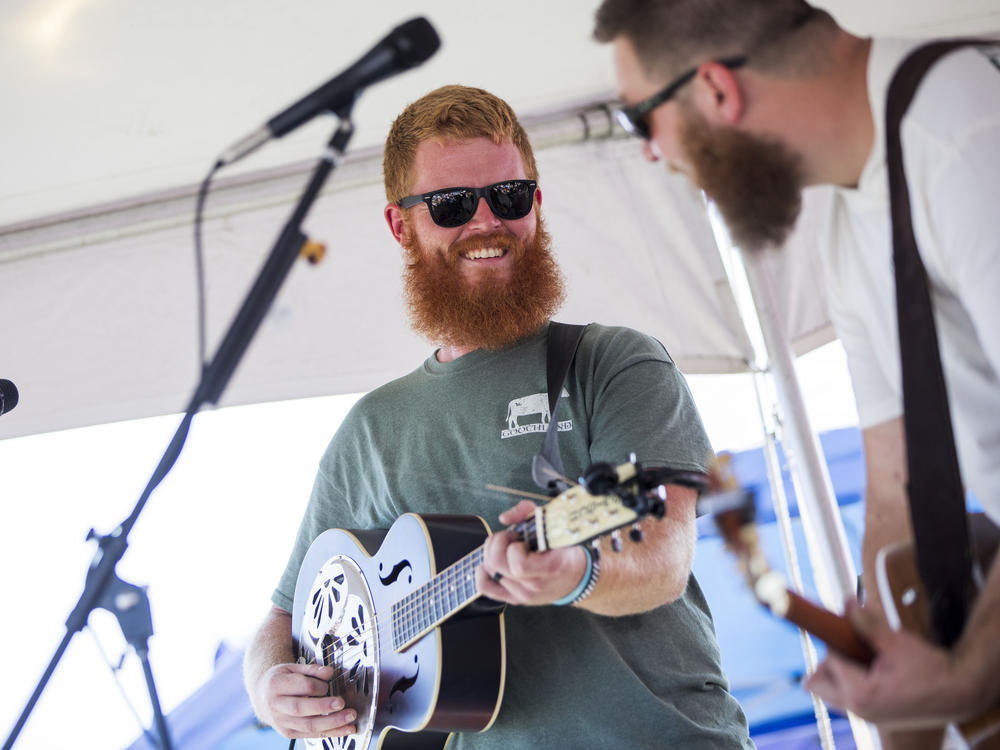Section Branding
Header Content
The viral song 'Rich Men North of Richmond' made its way to the RNC debate stage
Primary Content
The first Republican primary debate opened up with a nod to a breakout country song, "Rich Men North of Richmond," that has achieved the unusual feat of topping the Billboard 100 chart almost overnight.
The song, which is being hailed by some as a kind of "hillbilly elegy" for the working class, comes from a previously unknown singer who goes by the name Oliver Anthony.
It rails against the hardship of taxation, but also against people on welfare — and it also nods to a conspiracy theory that has become a mainstay of the far right.
In one lyric, Anthony says, "I wish politicians would look out for miners / And not just minors on an island somewhere."
The mention of "minors on an island" is understood to refer to the Jeffrey Epstein scandal; though Epstein died in jail in 2019, the circumstances around his death continue to feed conspiratorial thinking.
"[That] really opened up a lot of people to conspiratorial content that they might have not otherwise interacted with," said Jared Holt, senior researcher at the Institute for Strategic Dialogue. Holt said anxieties around COVID-19 and false narratives around a stolen election were often mixed in with content that was skeptical about Epstein's death, bringing people further along the breadcrumb trail of conspiratorial thinking.
In another taped interview on his public YouTube page, Anthony also speaks about his concern over human trafficking and says "one of the worst things a human can do is take advantage of a child."
Together, those notes hit on themes that are foundational to the QAnon conspiracy theory.
That conspiracy theory revolves around a baseless claim that elites (those whom Anthony might call the "Rich Men North of Richmond") are secretly trafficking children for sex and to harvest their blood.
It is closely tied in with the anti-Semitic blood libel and has helped lay the groundwork for a moral panic around children being targeted by pedophiles, which today has propelled violent extremists to target LGBTQ people and their allies.
Of particular note is the way in which this song went viral. "It sort of spread as an anthem," said Holt. "How I encountered it was through political channels rather than music-focused channels. It's not like Pitchfork wrote up the song."
Holt said that it's typical for political movements to latch onto cultural artifacts like music or movies to broaden their reach. But in this case, Holt warned that the individuals seizing on the song may lead unsuspecting audiences into their extremist spheres.
Among the early online boosters of the song were Matt Walsh, a far-right commentator who has fanned anti-LGBTQ sentiment. Walsh posted the song to his X account, to 1 million views. Jack Posobiec, a rightwing activist who promoted the false Pizzagate conspiracy theory and has documented ties with white nationalists, shared it on his X account to more than 5 million views.
"What is concerning is how this song is being used and the type of figures who are attaching themselves to the song, especially on the back of its success," said Holt. "And if these far-right figures are successful in associating themselves directly with the song, it could potentially open up a wider audience that they might normally not have access to all the time."
This reporting originally appeared in our live blog. Revisit how the debate unfolded.
Copyright 2023 NPR. To see more, visit https://www.npr.org.

